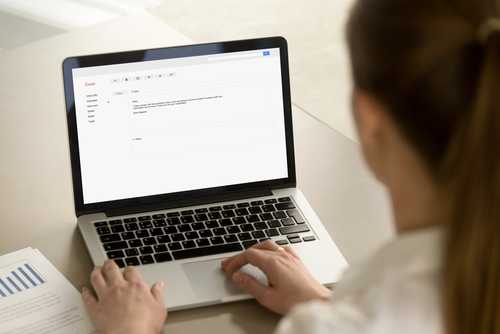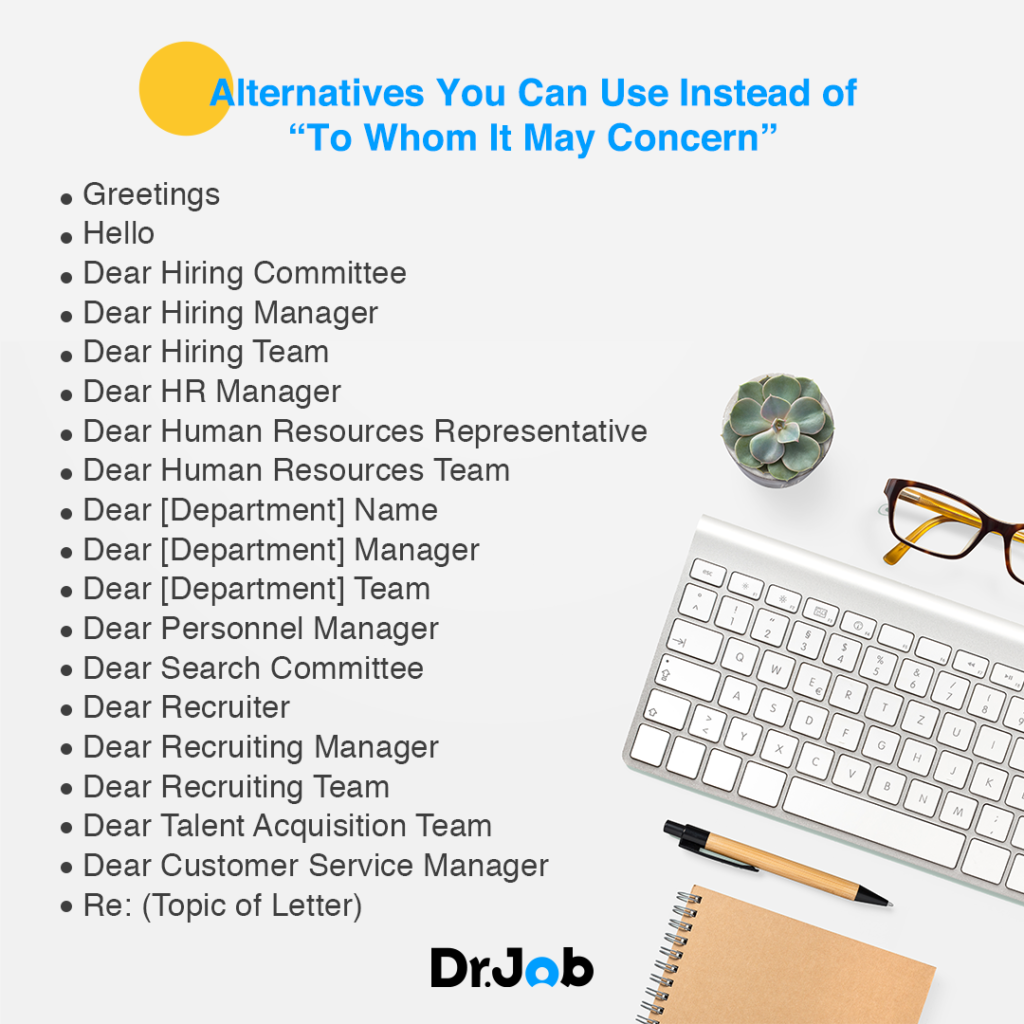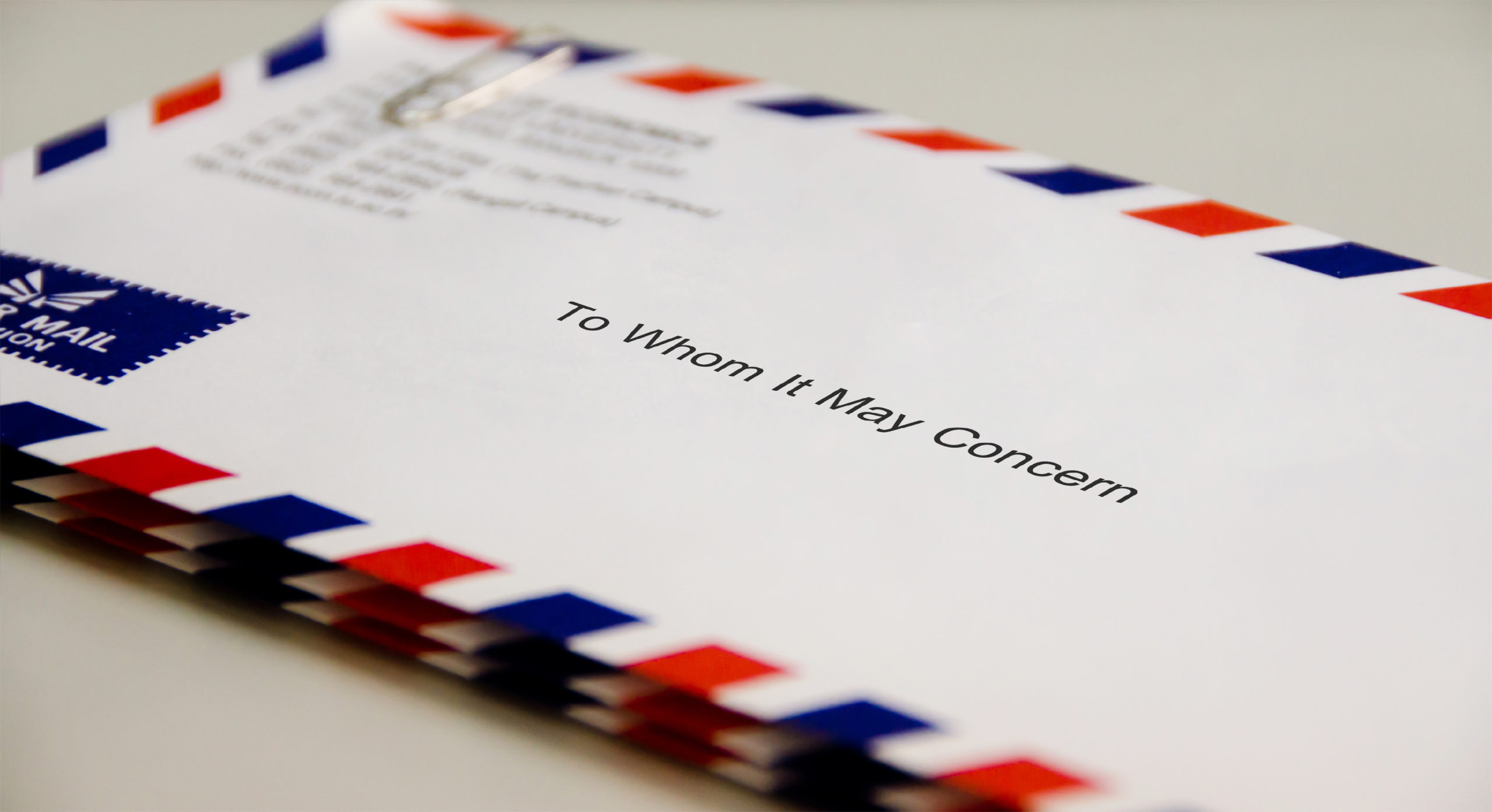To whom it may concern is a phrase frequently used in formal letters. It is one of the ways to start a formal letter where you are not addressing anyone by name. When used appropriately, this phrase should make your formal letter more professional and perfect.
Whether you're writing a cover letter/salutation in an email or a short sales letter to promote an online product, Knowing the name of the person you are addressing your letter plays a significant part in reading and acknowledging your letter.
So, in this post, you will find answers to all the questions that pop into your mind while thinking about the greeting: "To Whom It May Concern."
When To Use "To Whom It May Concern"

Yes, it may not be easy to define when to use and when not to use, to Whom It May Concern but here are some everyday situations:
Contacting a huge corporation or a new department
"To Whom It May Concern" will be a good option if you send your letter or email to a big firm or a new department where you don't know to whom your email will arrive.This happens when you try contacting the corporation on its website or via its general company email.
Ask for the point of contact in your email so you can address your following emails to the right person.
Example:To Whom It May Concern,
I saw that your organization is opening two new branches in Dubai. I work at Challhoub Group, a retail-based group of companies
I have solid sales experience in the UAE market. I'd want to speak with the sales manager in charge of hiring the sales team about the prospect of collaborating.
Regards,
Moustafa
Recommendation/Reference Letters
If you recommend your colleague or serve as a reference, you'll receive an automated email through a system, so you won't need to search for the person's name.
Example:To Whom It May Concern,
During his 5 years at ABC, Ahmed was an exemplary employee.
He took his job extremely seriously, volunteered for tasks outside his usual responsibilities, and was our top-performing marketing specialist for all 5 years. I wholeheartedly endorse him for this role.
Regards,
Amjad Mubarak
A complaint against a company
Do you want to file an official complaint with a company? It probably doesn't matter if your complaint reaches an executive, a CSR, or the CEO - all you want is for your problem to be acknowledged and resolved.
Example:To Whom It May Concern,
I was disappointed that the Huwaei phone I got only included the cable rather than the charger set on your website. I want a complete refund as quickly as possible and the proper offer.
Thank you very much.
Mohamed Saaed
Introductions
Using To Whom It May Concern will be acceptable if you are introducing yourself to someone you have never seen or known before.
Example:To Whom It May Concern,
I've received your request for a proposal for 10 articles/month. I've included the quotation in this email and will be delighted to address any queries you might have.
I'd also want to know your name and a little bit about your company!
Thank you very much,
Hany Mourad
Prospecting Letters
If you're a salesman trying to reach new prospects, it's your responsibility to know who you are calling. Ideally, you can try to reach them online via their LinkedIn accounts, for example, or face to face via a friend. This is adequate but not perfect.If you find it challenging to find your prospect's name, using To Whom, It May Concern will be a must, but don't expect high results.
Example:To Whom It May Concern,
Your firm recently severed ways with its telecom provider, I noted. I work for Etisalat Partner, a mobile devices supplier, and I would like to talk with your company's tech manager. We take ourselves in individual customer care and quick delivery, and I'd love to see whether we're a good fit for you.
Thank You,
Mohamed Saad
How to Find the Person's Name to Avoid Using "To Whom It May Concern" When Applying for Jobs?

Exert Your Effort to Find the Person's Name
It would help if you tried to find the address person's name. For example, try your best to understand if you're sending a job application email and don't know the recruiter's name.If you are sending a letter to a specific person and want it to be read, you have to spend more time looking for the point of contact.
Check the Job Ad
Although many companies prefer not to mention the recruiter's name, they ensure receiving the application via one communication channel, others mention the recruiter's name, and they are open to receiving applications via any means of communication.So, please read the job ad till the end; you may find the receiver's name and address your letter to him.
Check the Company Website
Finding the name of the person you're contacting can be made easier if you check the company's website because many companies mention their staff names in the "About Us" or "Contact Us" sections.
Check the Company's Page on LinkedIn
At the top of each company's page on LinkedIn, you'll find a hyperlinked section called "employees work here," To get a list of all workers, click this section. You should be able to scroll through the list until you discover the person, position, or title with whom you want to send your email.
Call the Company Directly
You can directly call the company and ask the receptionist about the recruiter's name since you are looking for a job and want to send a job application letter to him.Don't forget to ask her to spell the name to ensure it's correct.
It may take some more time, but finding the name of the person you're contacting is critical. Show your letter receiver that you have exerted an effort to do it well.
If you come across your contact's name while conducting your research, you should be upfront with them about how you discovered their information.
How to Write "To Whom It May Concern"?
If you use a formal greeting, such as "To Whom It May Concern," make sure to structure it appropriately. Here's how to compose "To Whom It May Concern":
- Capitalize the initial letters of the word
- Replace "whomever it may concern" with "To Whom It May Concern."
- Replace the comma after "To Whom It May Concern" with a colon
- Skip the first line, then start your letter
If you follow all of these procedures but still do not know the person's name, you can use "To Whom It May Concern" or other alternatives.
Alternatives You Can Use Instead of "To Whom It May Concern"/ Ways to Start a Formal Letter

- Greetings
- Hello
- Dear Hiring Committee
- Dear Hiring Manager
- Dear Hiring Team
- Dear HR Manager
- Dear Human Resources Representative
- Dear Human Resources Team
- Dear [Department] Name
- Dear [Department] Manager
- Dear [Department] Team
- Dear Personnel Manager
- Dear Search Committee
- Dear Recruiter
- Dear Recruiting Manager
- Dear Recruiting Team
- Dear Talent Acquisition Team
- Dear Customer Service Manager
- Re: (Topic of Letter)

To Wrap Things Up,
If you work in an office and communicate with clients regularly in writing (and if you don't yet, you should!), you know that language matters, and how we address people makes all the difference!
Try to find alternatives to the overly used greeting "To Whom It May Concern," and know more about writing formal and business letter or email:
- Experience Letter Format (+Tips & Free Word Templates)|Drjobpro.com
- Resignation Withdrawal Letter: Check the Tips & Sample Emails|Drjobpro.com
- How to Write an Experience Certificate Request Letter?
- How to Write a Resignation Letter (with sample)







 2025-03-28
2025-03-28
 2025-03-26
2025-03-26
 2025-03-26
2025-03-26
 2025-03-08
2025-03-08
 2025-03-08
2025-03-08